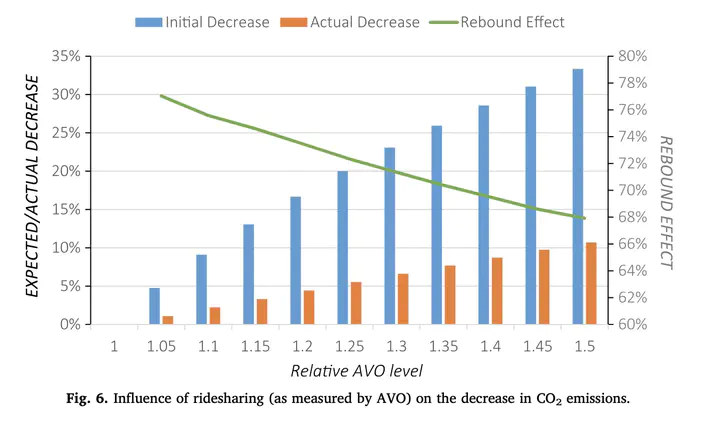Substantial Rebound Effects in Urban Ridesharing: Simulating Travel Decisions in Paris, France

Abstract
This paper investigates how and to what extent changes in user behavior may mitigate the environmental benefits of urban ridesharing, a phenomenon commonly referred to as ``rebound effect’’. Ridesharing reduces both the individual cost of car travel (through cost splitting) and road travel times (by decreasing congestion). This may trigger a number of behavioral changes among transportation users, including: making less detours to avoid congestion (route choice effect), switching from public transit and active modes to the car (modal shift effect), travelling longer distances (distance effect), and relocating further from the urban center (relocation effect). Taking Paris region as a case study, this research applies an integrated transportation/land-use model to evaluate several ridesharing scenarios and quantify the four rebound effects. The overall rebound effect is found to be substantial, cancelling out from 68 to 77% of CO2 emission reductions and from 52 to 73% of aggregated social benefits (including congestion, air quality, CO2 emissions, noise) expected from ridesharing. This is primarily the result of the modal shift effect, supplemented as ridesharing develops by the distance effect. Although the simplified representation of ridesharing in the baseline model calls for caution regarding these estimates, a sensitivity analysis corroborates the main findings and the prevalence of substantial rebound effects. The paper also investigates to what extent three complementary policies - improving public transit, reducing road capacity or increasing the cost of car travel – might limit the overall rebound effect and thereby maximize the benefits of urban ridesharing.